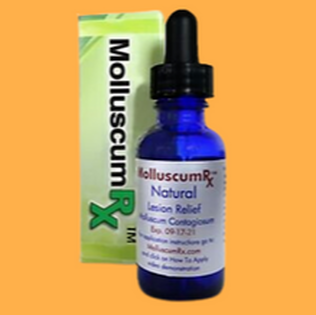Comprehensive Guide to Molluscum Contagiousum Treatment
Introduction
Molluscum contagiosum is a common viral skin infection that causes small, raised lesions on the skin. This condition can affect both children and adults, although it is more prevalent among children. Understanding molluscum and its treatment options is crucial for managing this infection effectively.
What is Molluscum Contagiosum?
Molluscum contagiosum is caused by a virus from the poxvirus family. The infection results in benign, painless bumps or lesions that can appear anywhere on the body. These lesions are known as Mollusca and are usually characterized by their raised, dome-shaped, and flesh-colored appearance and may have a dimple in the center. Like its name implies, the infection can easily spread. You may become infected by touching one of the bumps, or touching a towel or object that someone else with molluscum has touched. Although molluscum is common in children, adults can get this infection also, usually through sexual relations. In children, it is most often on the chest, stomach, face, neck arms armpits, and legs. In adults, it is often found in the genitals, belly, or inner thigh. While the condition is not serious and often resolves on its own, it can take several months or even years to clear up without treatment.
Molluscum contagiosum is a common viral skin infection that causes small, raised lesions on the skin. This condition can affect both children and adults, although it is more prevalent among children. Understanding molluscum and its treatment options is crucial for managing this infection effectively.
What is Molluscum Contagiosum?
Molluscum contagiosum is caused by a virus from the poxvirus family. The infection results in benign, painless bumps or lesions that can appear anywhere on the body. These lesions are known as Mollusca and are usually characterized by their raised, dome-shaped, and flesh-colored appearance and may have a dimple in the center. Like its name implies, the infection can easily spread. You may become infected by touching one of the bumps, or touching a towel or object that someone else with molluscum has touched. Although molluscum is common in children, adults can get this infection also, usually through sexual relations. In children, it is most often on the chest, stomach, face, neck arms armpits, and legs. In adults, it is often found in the genitals, belly, or inner thigh. While the condition is not serious and often resolves on its own, it can take several months or even years to clear up without treatment.
Symptoms and Causes
Tips to prevent the spread of molluscum:
If you have a normal immune system, the bumps may go away on it's own in 6 to 18 months. If you have treatment, the bumps may go away within 2 to 4 months. If you have a weak immune system, the bumps may get worse quickly and you will need treatment to make them go away.
Treatment Options for Molluscum
While molluscum lesions often resolve on their own, various treatment options can help speed up the healing process and prevent the spread of the virus. These include:
- Symptoms: Small, raised lesions with a dimple in the center, typically painless but can become itchy or sore.
- Causes: The virus spreads through direct skin-to-skin contact, sharing personal items (like towels), or contact with contaminated surfaces. It is also considered a sexually transmitted infection (STI) when it affects the genital area.
Tips to prevent the spread of molluscum:
- Do not scratch the bumps to avoid spreading the virus.
- Do not share towels, clothes, or personal items with anyone.
- Do not share baths while you have bumps on your body.
- Cover up bumps on with clothing or bandage before coming into contact with others.
- Use caution when doing sports such as swimming, wrestling or gymnastics. The virus may be spread on mats or in the water.
- If you have bumps on your genitals, abstain from sex or practice safe sex. Avoid multiple sex partners. Using condoms may not prevent the spread of this virus.
- Do not shave areas that have bumps on them.
If you have a normal immune system, the bumps may go away on it's own in 6 to 18 months. If you have treatment, the bumps may go away within 2 to 4 months. If you have a weak immune system, the bumps may get worse quickly and you will need treatment to make them go away.
Treatment Options for Molluscum
While molluscum lesions often resolve on their own, various treatment options can help speed up the healing process and prevent the spread of the virus. These include:
- Cryotherapy: Freezing the lesions with liquid nitrogen.
- Curettage: Scraping the lesions off with a sharp instrument.
- Topical Treatments: Applying creams or ointments that contain antiviral or immune-boosting properties.



